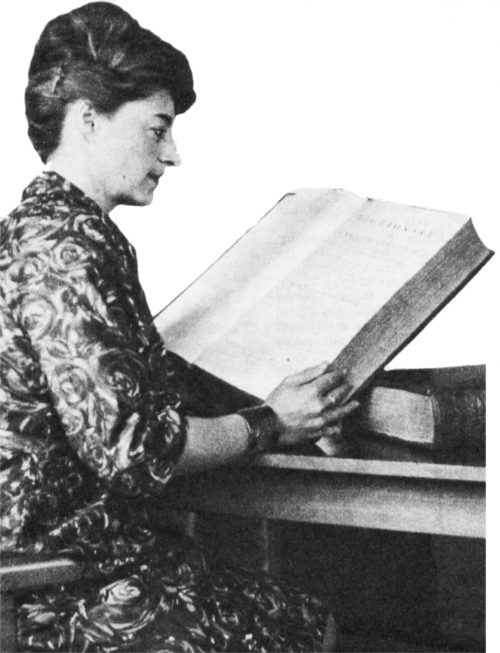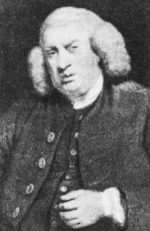‘Their Starter’ for Eight Teams and… IT’S A KNOCKOUT
University Challenge finals are here


DR. SAMUEL JOHNSON defined the word “challenge,” in the first English dictionary more than 200 years ago, as “a summons to combat.”
If Dr. Johnson’s roiling and splendid definitions haven’t yet made any particular impact on the competitors in the Monday evening battle of Britain’s brightest wits, University Challenge, they certainly will over the next few weeks.

Because this week the programme launches its own knockout competition among the eight teams unbeaten so far in the show. And the prize for the winning university is a first edition of Dr. Johnson’s dictionary.
“It is the general knowledge equivalent of the F.A. cup.” said producer Patricia Owtram. “The sort of champion-of-champions competition that most viewers have wanted.”
The teams through to the final are: King’s College, London; Keble College, Oxford; Balliol College, Oxford; Keele College, North Staffs; Birbeck College, London; Leicester University; Leeds University and Nottingham University.
In each of the rounds they will play the best of three games.
Dr. Johnson’s feelings about such contests aren’t on record. But a glance through the dictionary – stowed away for the time being in Patricia Owtram’s safe — provides fascinating comment on many other things.
It is perhaps as well, for instance, that there are no Scottish teams involved in the final knockout.
Dr. Johnson sometimes let his feelings colour his definitions. He had a down on Scotsmen, and when he came to the word “oats” he wrote: “A grain which in England is generally given to horses, but in Scotland supports the people.” [This was a comment upon the poverty of Scotland vs the prosperity of England, not on the quality of the Scottish people – Ed]
He didn’t like paying his taxes either. So about the word “excise” he wrote: “A hateful tax, levied upon commodities and adjudged not by the common judges of property, but wretches hired by those to whom excise is paid.”

The Commissioners of Excise were so annoyed by this definition that they complained to the Attorney-General. But the definition stayed in.
The modern image of Dr Johnson is that of a pompous, self-assured man, but he had his occasions of great humility.
This was never illustrated more clearly than in his definition of the word “lexicographer,” which was “a writer of dictionaries, a harmless drudge.”
The first edition copy of the greatest work of this particular “harmless drudge” is valued, at present market rating, at several hundred pounds.




